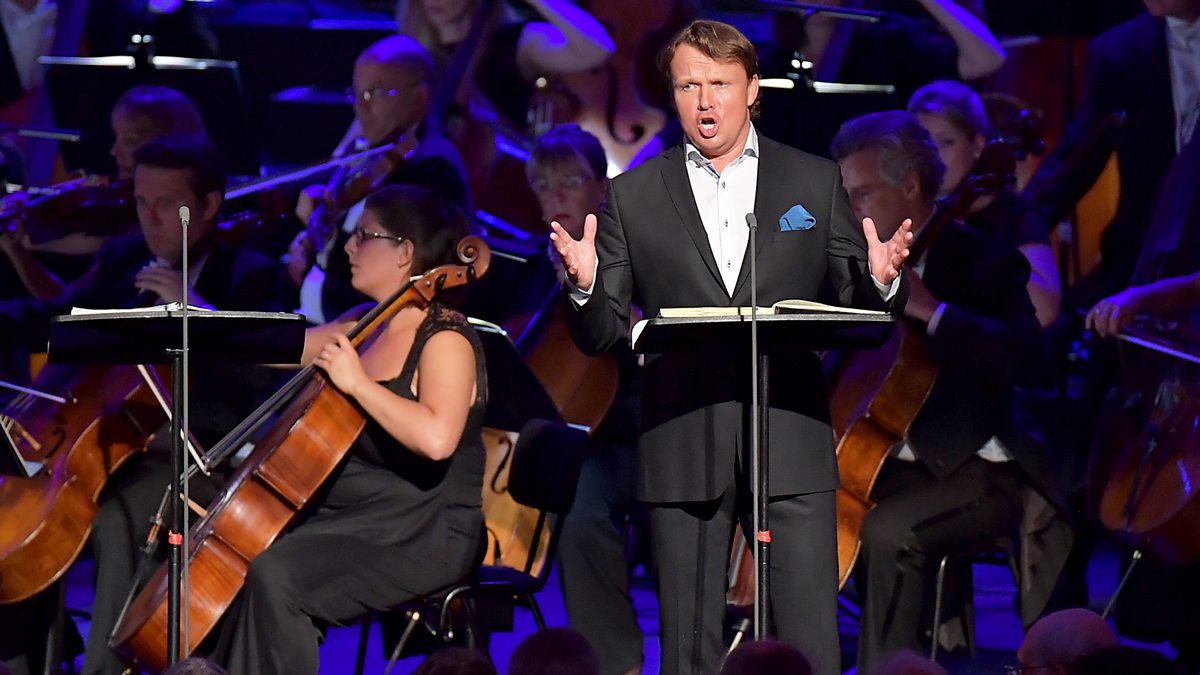19:30 Friday 19 Aug 2016
Royal Albert Hall
Leos Janacek: The Makropulos Affair
(concert performance; sung in Czech)
Emilia Marty ..... Karita Mattila (soprano)
Albert Gregor ..... Aleš Briscein (tenor)
Dr Kolenatý ..... Gustáv Belácek (bass-baritone)
Vítek ..... Jan Vacík (tenor)
Kristina, Vitek's daughter .... Eva Šterbová (soprano)
Baron Jaroslav Prus ..... Svatopluk Sem (baritone)
Janek ..... Aleš Vorácek (tenor)
Count Hauk-Šendorf ..... Jan Ježek (tenor)
Stage Technician .... Jiri Klecker (baritone)
Cleaning Woman ..... Yvona Škvárová (contralto)
Chambermaid ..... Jana Hrochová-Wallingerová (contralto)
BBC Singers (men's voices)
BBC Symphony Orchestra
Jirí Belohlávek, conductor
Kenneth Richardson, stage director
A dream team gathers for Janacek's late, great existential masterpiece The Makropulos Affair. This tragic satire is powered by a score that contains some of the composer's most extreme and alluring music.
The Finnish soprano Karita Mattila, acclaimed for her 'electrifying' portrayal of the opera's heroine, Emilia Marty, at the Met in New York, is joined by Czech singers and the BBC Symphony Orchestra's Conductor Laureate Jirí Belohlávek.
Royal Albert Hall
Leos Janacek: The Makropulos Affair
(concert performance; sung in Czech)
Emilia Marty ..... Karita Mattila (soprano)
Albert Gregor ..... Aleš Briscein (tenor)
Dr Kolenatý ..... Gustáv Belácek (bass-baritone)
Vítek ..... Jan Vacík (tenor)
Kristina, Vitek's daughter .... Eva Šterbová (soprano)
Baron Jaroslav Prus ..... Svatopluk Sem (baritone)
Janek ..... Aleš Vorácek (tenor)
Count Hauk-Šendorf ..... Jan Ježek (tenor)
Stage Technician .... Jiri Klecker (baritone)
Cleaning Woman ..... Yvona Škvárová (contralto)
Chambermaid ..... Jana Hrochová-Wallingerová (contralto)
BBC Singers (men's voices)
BBC Symphony Orchestra
Jirí Belohlávek, conductor
Kenneth Richardson, stage director
A dream team gathers for Janacek's late, great existential masterpiece The Makropulos Affair. This tragic satire is powered by a score that contains some of the composer's most extreme and alluring music.
The Finnish soprano Karita Mattila, acclaimed for her 'electrifying' portrayal of the opera's heroine, Emilia Marty, at the Met in New York, is joined by Czech singers and the BBC Symphony Orchestra's Conductor Laureate Jirí Belohlávek.


 or e.g. the one I printed from an internet source for the Janáček) that anything would be better than nothing. Inevitably, the more wordy and briskly dispatched the libretto, the harder it is to concentrate on anything other than not losing your place. I found it a struggle to keep up with Boris Godunov, didn't bother with a libretto for Bluebeard (which disproved my assumption that I knew the upshot well enough for it not to matter) and found that there's something about Czech which made it relatively easy to keep track. I'd still rather have been focused entirely on the stage though. Plus, the sound of 5000 pages being turned every 30 seconds isn't exactly optimal!
or e.g. the one I printed from an internet source for the Janáček) that anything would be better than nothing. Inevitably, the more wordy and briskly dispatched the libretto, the harder it is to concentrate on anything other than not losing your place. I found it a struggle to keep up with Boris Godunov, didn't bother with a libretto for Bluebeard (which disproved my assumption that I knew the upshot well enough for it not to matter) and found that there's something about Czech which made it relatively easy to keep track. I'd still rather have been focused entirely on the stage though. Plus, the sound of 5000 pages being turned every 30 seconds isn't exactly optimal!
Comment